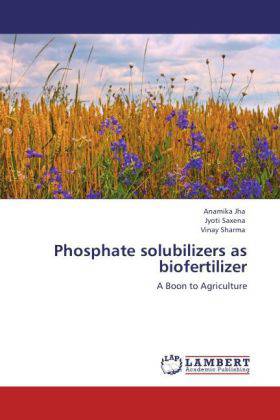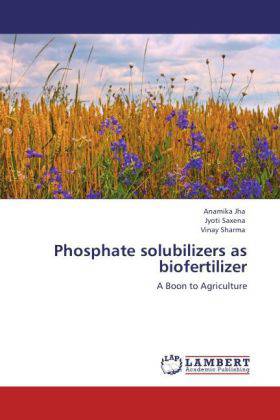
- Afhalen na 1 uur in een winkel met voorraad
- Gratis thuislevering in België vanaf € 30
- Ruim aanbod met 7 miljoen producten
- Afhalen na 1 uur in een winkel met voorraad
- Gratis thuislevering in België vanaf € 30
- Ruim aanbod met 7 miljoen producten
Zoeken
Phosphate solubilizers as biofertilizer
A Boon to Agriculture
Anamika Jha, Jyoti Saxena, Vinay Sharma
Paperback | Engels
€ 77,95
+ 155 punten
Omschrijving
Phosphorus is an important plant nutrient, but unfortunately when it is applied to the soil as fertilizer, it quickly combines with other components of soil forming various compounds that are unavailable to the plants. A group of microbes known as Phosphate solubilizing microorganisms (PSM) are actively engaged in P transformations in soil and transport it to the plants. These PSM are believed to play an important role in supplementing P to plants, thus allowing sustainable use of phosphatic fertilizers. P is insufficient in most of the Indian soils as available P, and Rajasthan is one of them. Although crop yields can be improved by application of chemical fertilizers, but due to several drawbacks associated with them, PSM based biofertilizers offer a viable alternative. Thus, the project was undertaken with the objective to isolate, identify and characterize the indigenous bacterial strains from agricultural soil having capability of P solubilization.
Specificaties
Betrokkenen
- Auteur(s):
- Uitgeverij:
Inhoud
- Aantal bladzijden:
- 240
- Taal:
- Engels
Eigenschappen
- Productcode (EAN):
- 9783846545034
- Uitvoering:
- Paperback

Alleen bij Standaard Boekhandel
+ 155 punten op je klantenkaart van Standaard Boekhandel
Beoordelingen
We publiceren alleen reviews die voldoen aan de voorwaarden voor reviews. Bekijk onze voorwaarden voor reviews.











